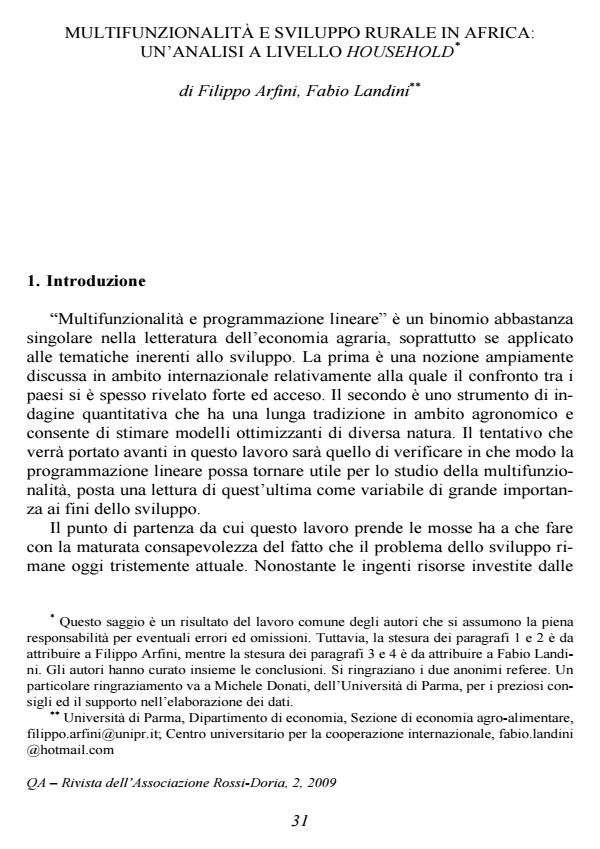Multifunzionalità e sviluppo rurale in Africa: un'analisi a livello household
Journal title QA Rivista dell’Associazione Rossi-Doria
Author/s Filippo Arfini, Fabio Landini
Publishing Year 2009 Issue 2009/2
Language Italian Pages 33 P. 31-63 File size 469 KB
DOI 10.3280/QU2009-002002
DOI is like a bar code for intellectual property: to have more infomation
click here
Below, you can see the article first page
If you want to buy this article in PDF format, you can do it, following the instructions to buy download credits

FrancoAngeli is member of Publishers International Linking Association, Inc (PILA), a not-for-profit association which run the CrossRef service enabling links to and from online scholarly content.
This work offers an interpretation of the role that multifunctionality plays in the policies that sustain rural development. Assuming as a reference the livelihood approach, we analyse multifunctionality within a framework which differs from the usual Wto negotiations. We reappraise its significance as a variable that reinforces the livelihood strategies of the rural households. In terms of policy design we analyse the costs of the secondary services and the variables that allow for their reduction. A quantitative evaluation is then carried out on the basis of an LP model taking a multifunctional farm in Africa. The results obtained are that: multifunctionality is very costly; most of the private costs of multifunctionality are due to constraints on specialisation in production; both coupled and de-coupled payment sustain multifunctionality but in different ways; technological progress is a key variable for economic sustainability.
Filippo Arfini, Fabio Landini, Multifunzionalità e sviluppo rurale in Africa: un'analisi a livello household in "QA Rivista dell’Associazione Rossi-Doria" 2/2009, pp 31-63, DOI: 10.3280/QU2009-002002